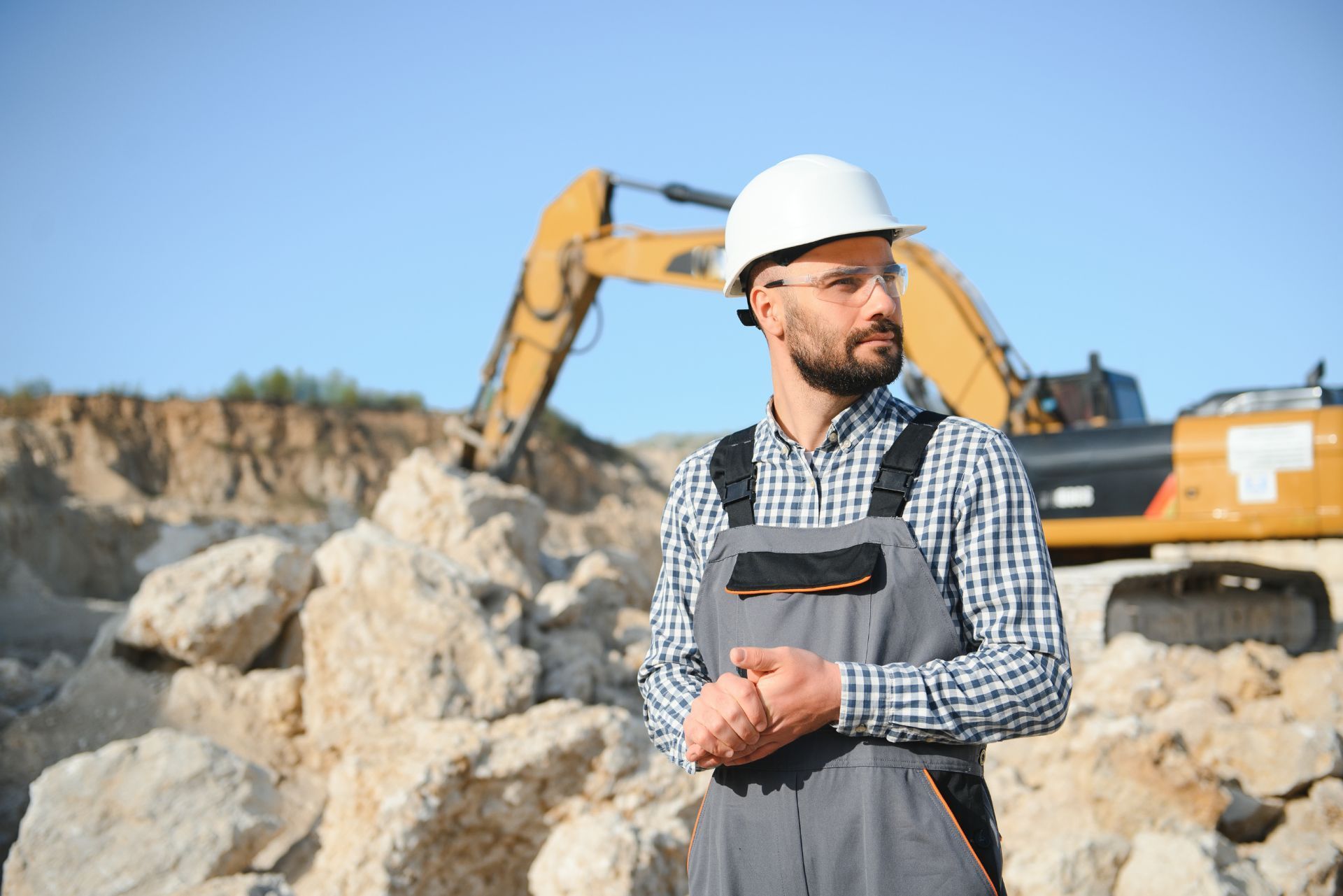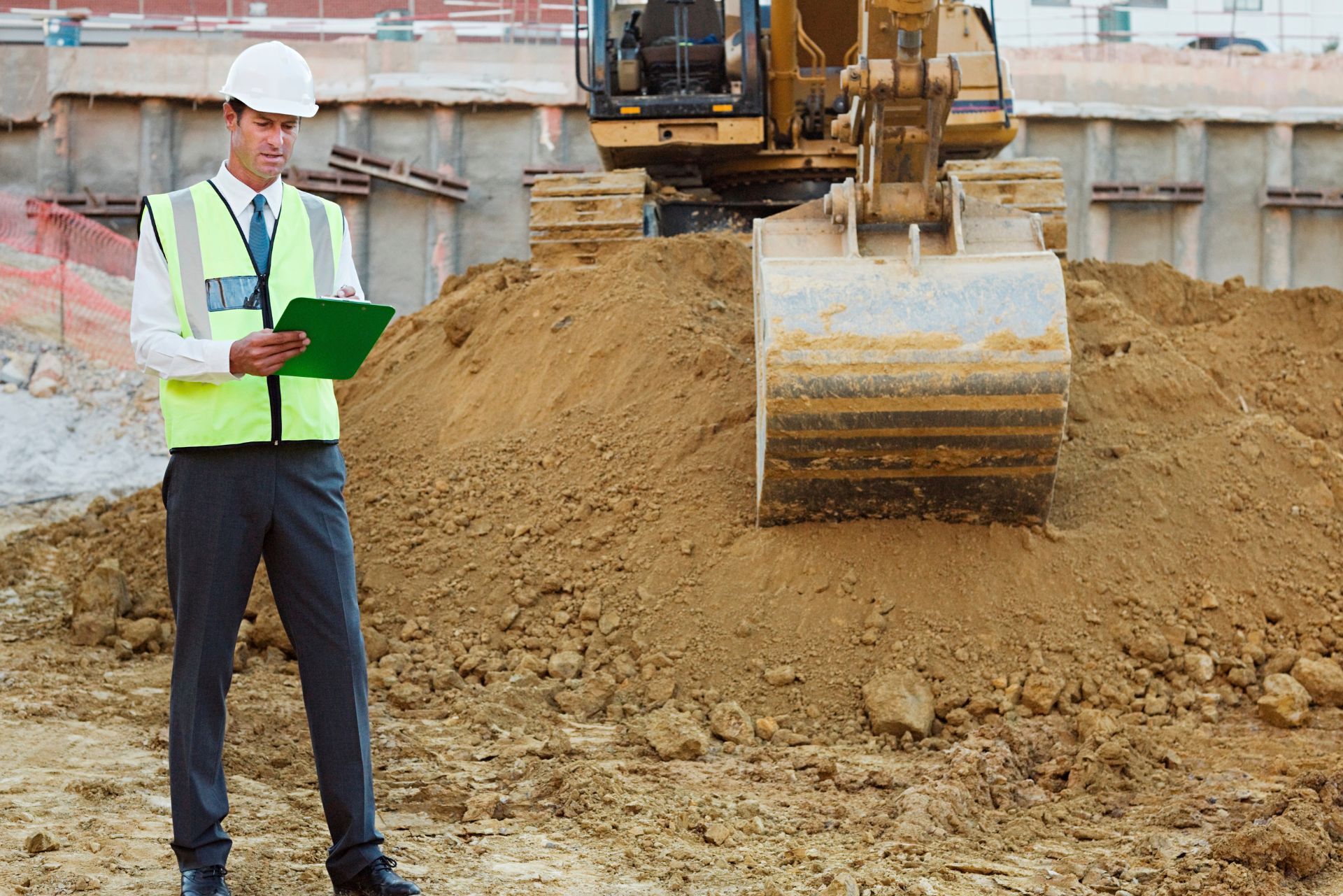Florida Excavation & Grading Contractor Insurance
8:30am - 5:00pm Mon-Fri
Will Reply in 15min*
Top Recommended Business Insurance Policies

Index
Why Excavation & Grading Contractors Need Specialized Insurance
Key Types of Insurance for Excavation & Grading Contractors
Understanding the Impact of Industry Trends on Insurance Costs
Compliance and Safety: Reducing Risks and Insurance Claims
How to Choose the Right Insurance Provider
Conclusion: Protecting Your Excavation & Grading Business in Florida
Contact Us
Phone
Location
Excavation and grading contractors in Florida face unique challenges and risks every day. From managing heavy equipment to ensuring safety on unstable terrain, the potential for accidents and costly claims is significant. This makes having the right insurance coverage not just a good idea, but an essential part of running a successful and compliant business.
In 2025,
general liability insurance covered 77% of claims in the construction industry, highlighting its critical role in protecting contractors against third-party injury and property damage risks. For excavation and grading contractors, understanding the nuances of insurance policies can safeguard their operations and financial future. This article dives deep into everything you need to know about insurance tailored specifically for Florida’s excavation and grading contractors.
Why Excavation & Grading Contractors Need Specialized Insurance
Excavation and grading work involves significant risk. Contractors often work in trenches, around heavy machinery, and in environments where soil stability can change rapidly. These conditions increase the likelihood of accidents, injuries, and property damage. According to Palmer Insurance Agency, excavation work is crucial yet fraught with risks, underscoring the importance of insurance to cover potential financial losses.
One of the most dangerous aspects of excavation is trench work. OSHA’s Jacksonville area office director, Scott Tisdale, warned, “Exposing workers to unprotected trenches puts their lives at serious risk.” This statement reflects the real dangers contractors face, and why insurance policies must be comprehensive enough to cover such hazards. The risk is not only physical; the financial implications of an accident can be devastating, often leading to costly lawsuits, medical expenses, and loss of income for both the contractor and their employees.
In December 2024, OSHA fined two Florida contractors—Masci General Contractor Inc. and KT Carter Contracting Inc.—over $360,000 combined for trench safety violations. These penalties illustrate the financial consequences of neglecting safety protocols and the importance of insurance that includes coverage for regulatory fines and related claims. Furthermore, the potential for damage extends beyond immediate injuries; an excavation accident can halt projects, disrupt schedules, and tarnish a contractor's reputation, making it even more crucial to have specialized insurance that addresses these unique challenges.
Moreover, excavation and grading contractors must also consider the environmental factors that can impact their work. For instance, heavy rainfall can lead to sudden soil erosion or flooding, creating hazardous conditions that can result in accidents. The unpredictability of weather patterns necessitates a robust insurance policy that not only covers injuries but also protects against environmental liabilities. Additionally, contractors may be held responsible for any damage caused to neighboring properties during excavation, further emphasizing the need for insurance that caters specifically to the nuances of the excavation industry.
Lastly, the evolving landscape of construction technology introduces new risks and complexities. With the increasing use of drones for site surveys and advanced machinery for grading, contractors must be aware of the potential liabilities associated with these technologies. Specialized insurance can provide coverage for equipment malfunctions or accidents involving new technologies, ensuring that contractors are protected as they embrace innovation in their work. As the industry continues to evolve, so too must the insurance solutions that support the safety and success of excavation and grading contractors.
Key Types of Insurance for Excavation & Grading Contractors
Excavation and grading contractors should consider several types of insurance to adequately protect their business:
General Liability Insurance
This is the cornerstone of any contractor’s insurance portfolio. It covers third-party bodily injury, property damage, and legal defense costs. In 2025, general liability insurance accounted for coverage in 77% of construction industry claims, making it indispensable for excavation contractors. Furthermore, this type of insurance not only protects against accidents that may occur on the job site but also covers incidents that happen off-site, such as damage caused by equipment during transportation. Given the unpredictable nature of excavation work, having robust general liability coverage can provide peace of mind and financial security.
Umbrella Liability Insurance
Given the high stakes in excavation work, many contractors opt for umbrella liability insurance, which provides broader coverage limits beyond base policies. Over half (55%) of U.S. construction firms carried umbrella liability insurance in 2025, reflecting its growing importance in managing large, unexpected claims. This type of insurance acts as a safety net, kicking in when the limits of other liability policies are exhausted. For example, if a serious accident occurs on a job site resulting in significant injuries, umbrella liability insurance can cover the additional costs that exceed the limits of the general liability policy, thereby safeguarding the contractor's financial stability and reputation.
Subcontractor Insurance Requirements
Subcontractors play a significant role in excavation projects, but they also introduce additional liability risks. In fact, 41% of all liability claims in the construction industry stemmed from subcontractor work in 2025. This has led to tighter requirements for subcontractors to hold their own insurance, ensuring that primary contractors are protected from claims related to subcontractor negligence. Additionally, many contractors now require proof of insurance from subcontractors before work begins, which not only mitigates risk but also fosters a culture of accountability on the job site. By ensuring that all parties involved in a project are adequately insured, contractors can create a safer working environment and reduce the likelihood of costly disputes arising from accidents or negligence.

Understanding the Impact of Industry Trends on Insurance Costs
Insurance premiums for construction contractors, including those specializing in excavation and grading, have been on the rise. In 2025, average construction insurance premiums increased by 9.3%. This surge is driven by several factors:
- Wage Inflation: Higher labor costs increase the potential payout for injury claims.
- Material Volatility: Fluctuating costs of materials can complicate project budgets and insurance underwriting.
- Increased Claim Frequency: More frequent claims raise risk profiles, prompting insurers to raise premiums.
Contractors should anticipate these rising costs and work closely with insurance providers to tailor policies that balance coverage and affordability. Additionally, the evolving regulatory landscape has introduced more stringent safety standards, which can further influence insurance costs. For instance, new regulations may require contractors to invest in advanced safety training and equipment, which, while beneficial for reducing accidents, can also lead to increased operational expenses that are reflected in insurance premiums.
Moreover, the impact of climate change cannot be overlooked. With more frequent and severe weather events, construction sites face heightened risks, leading to a greater likelihood of property damage and liability claims. Insurers are increasingly factoring in these environmental risks when assessing policies, often resulting in higher premiums for contractors working in areas prone to natural disasters. As such, understanding these industry trends is crucial for contractors not only to manage their insurance costs effectively but also to ensure they remain competitive in a challenging market.
Compliance and Safety: Reducing Risks and Insurance Claims
Maintaining compliance with OSHA regulations and industry safety standards is critical for minimizing insurance claims and avoiding costly fines. The recent fines imposed on Florida contractors for trench safety violations serve as a cautionary tale. Investing in proper safety training and equipment not only protects workers but also helps keep insurance premiums in check.
Contractors should implement rigorous safety protocols, conduct regular site inspections, and ensure all employees are trained in excavation safety. These measures can significantly reduce the likelihood of accidents and subsequent claims.
Moreover, staying updated with the latest safety technologies can further enhance compliance efforts. For instance, utilizing advanced monitoring systems that detect potential hazards in real-time can provide an additional layer of protection for workers. Drones, for example, can be employed to survey job sites and identify unsafe conditions before they lead to accidents. By embracing innovation, contractors not only improve safety but also demonstrate a commitment to best practices, which can be a selling point when negotiating insurance terms.
Additionally, fostering a culture of safety within the organization is essential. Encouraging open communication about safety concerns and recognizing employees who adhere to safety protocols can motivate the entire workforce to prioritize safety. Regular safety meetings and workshops can reinforce the importance of compliance and keep safety at the forefront of daily operations. When employees feel valued and engaged in safety initiatives, they are more likely to take ownership of their roles, leading to a safer work environment and a reduction in potential insurance claims.

How to Choose the Right Insurance Provider
Selecting an insurance provider who understands the specific risks associated with excavation and grading work is essential. Look for agencies with expertise in construction insurance and a strong track record of supporting contractors through claims and risk management.
Palmer Insurance Agency, for example, emphasizes the importance of tailored insurance solutions for excavation contractors, highlighting the need for coverage that addresses the unique exposures of this line of work. Partnering with knowledgeable insurers can provide peace of mind and ensure comprehensive protection.
When evaluating potential insurance providers, it's crucial to assess their financial stability and customer service reputation. A provider with strong financial backing can ensure that claims are paid promptly, which is vital in the event of an accident or unexpected incident on the job site. Additionally, reading reviews and testimonials from other contractors can offer insights into the insurer's responsiveness and reliability. Engaging with an agent who specializes in construction insurance can also be beneficial, as they can guide you through the complexities of coverage options and help you understand the nuances of policy terms.
Furthermore, consider the range of coverage options available. Insurance needs can vary significantly based on the scale of your operations and the types of projects you undertake. For instance, some excavation work may require specialized liability coverage or equipment insurance to protect against theft or damage. A comprehensive policy should not only cover general liability but also address potential environmental impacts, worker safety, and equipment breakdowns. By ensuring that your insurance provider offers a variety of coverage options, you can customize your policy to fit your specific business needs, ultimately safeguarding your investment and ensuring operational continuity.
Conclusion: Protecting Your Excavation & Grading Business in Florida
Excavation and grading contractors in Florida operate in a high-risk environment where safety, compliance, and insurance coverage intersect. With general liability insurance covering the majority of claims in the construction sector and a growing emphasis on subcontractor insurance, contractors must stay informed and proactive about their insurance needs.
Rising premiums and regulatory enforcement underscore the importance of investing in comprehensive insurance policies that include umbrella coverage and subcontractor requirements. By prioritizing safety and partnering with experienced insurance providers, excavation and grading contractors can protect their businesses from financial setbacks and focus on successful project delivery.
For more detailed statistics and industry insights, visit CoinLaw’s construction insurance industry statistics and learn how to stay ahead in this evolving landscape.








